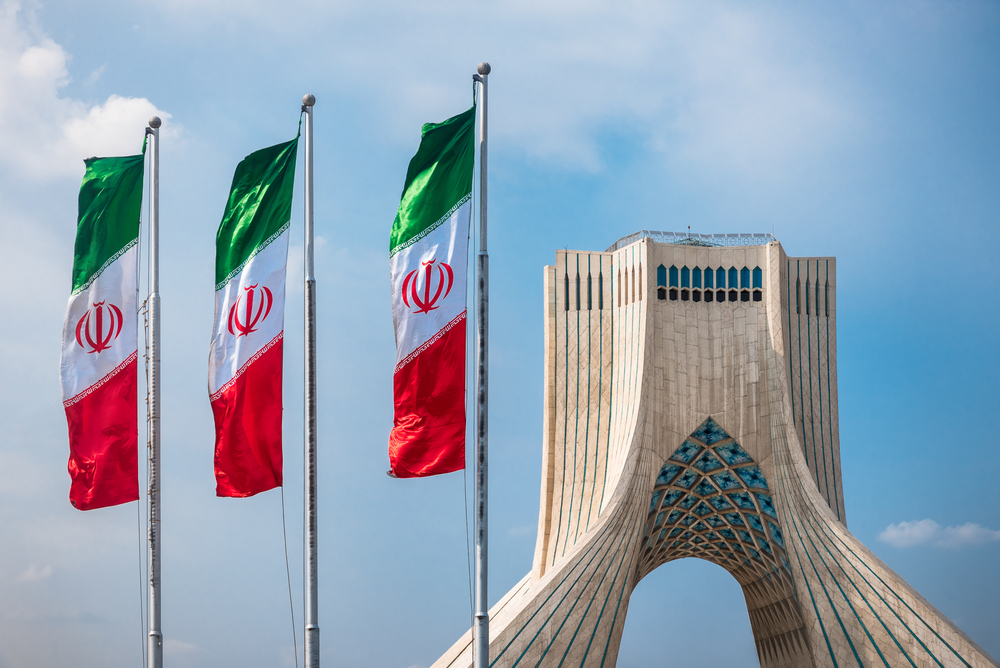As the cryptocurrency market continues to grow in popularity, we’re seeing the blockchain being used in more and more ways. From cryptocurrency to smart contracts to CryptoKitties, the implications of this technology are growing quickly. Interestingly enough, we’re also watching as some countries get into the crypto space. In fact, Iran recently announced that it will be launching a cryptocurrency of its own, following recent news of Venezuela doing the same. Today, we’ll talk about the announcement, what Iran and Venezuela have in common, and whether or not we’re likely to see more national cryptocurrencies being created by government entities.
Iran Will Likely Launch A Cryptocurrency Soon
According to various reports, Iran is currently thinking about coming up with its own national cryptocurrency. The news comes after the minister of Iran’s Ministry of Information, Mohammad-Javad Azari Jahromi, tweeted the following (below is a translated version of the tweet):
“In a meeting with the board of directors of Post Bank on digital currencies based on the blockchain, I… prescribed… measures to implement the country’s first cloud-based digital currency.”
The tweet above is a clear call to action, informing Iranian citizens as well as others that Iran is currently in the process of creating its own cryptocurrency. At the moment, there is no news as to what this cryptocurrency will be called. Nonetheless, the most interesting factor in all of this is the fact that it is Iran that’s creating the cryptocurrency shortly following Venezuela’s action in the industry.
What Iran And Venezuela Have In Common
Both Iran and Venezuela are interested in the world of cryptocurrency, but that’s not the only thing that the two countries have in common. In fact, both of these countries are the subject of trade sanctions from the United States.
As a result of these sanctions, businesses and consumers in the United States are not legally able to do business with businesses or consumers in either Venezuela or Iran. Not to mention that many allies of the United States follow suit when the United States imposes sanctions. Therefore, these sanctions are creating a financial squeeze on both Iran and Venezuela. Think of it like a boycott on a massive scale. The company, or in this case country, that experiences the boycott, feels financial pressure.
So, why is this important?
At first glance, it may seem as though the idea that Iran and Venezuela are building up their own cryptocurrencies isn’t that much of a big deal. However, these actions could shape the way financial pressures are put on nations in the future.
You see, cryptocurrency may be a way for these countries to work around sactions. After all, cryptocurrency may provide a covert way in which these countries can do business with otherwise banned regions. In a statement, Stavros Lambouris, CEO at HYCM Europe, a broker that supports the trading of cryptocurrency, recently said it best when he said:
“Because cryptocurrency is based on a decentralized system that provides anonymity, it is possible that they could be used as a workaround to trade sanctions. So, it’s no surprise to see that nations under sanctions are looking to develop cryptocurrencies of their own.”
If these newly formed cryptocurrencies do prove to be a way for Iran and Venezuela to successfully access capital in markets where they are restricted, countries around the world would be forced to find a way to block decentralized transactions that originate in sanctioned regions. This could prove to be overwhelmingly difficult.
Iran And Venezuela Do Have One Big Hurdle
If Iran and Venezuela are looking to use cryptocurrency as a way around sanctions, there is one thing that they are going to need to work on. At the end of the day, the blockchain isn’t scaled large enough to handle the amount of transactions that would have to take place for this to become a meaningful benefit to these regions. While launching cryptocurrencies may have several domestic benefits, based on the abilities of the blockchain as we know it today, crypto isn’t likely to work as a way around sanctions yet.
Will Others Jump On The Bandwagon
There’s no telling how many of the other countries currently under trade sanctions are considering launching their own cryptocurrency. If this does indeed prove to be a way around sanctions, we could see it in various regions around the world, putting pressure on the United States to find a way to force sanctions to evolve with the monetary system.
Image: Shutterstock



